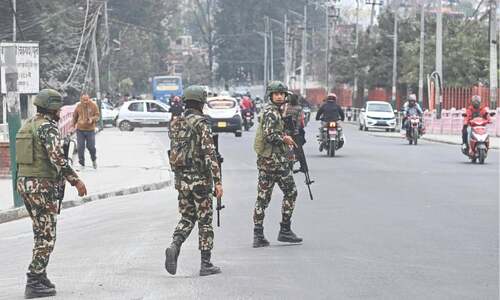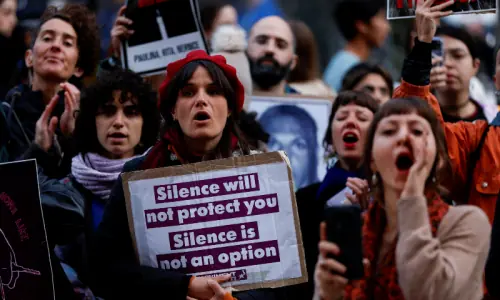MANILA: The leader of the largest Muslim rebel group in the Philippines said on Tuesday that 30,000 to 40,000 armed fighters would be “decommissioned” if an autonomy deal that is expected to be signed into law by the president this week is fully enforced.
Al Haj Murad Ebrahim, chairman of the Moro Islamic Liberation Front, said six of the largest guerrilla camps in the south were already being converted into “productive civilian communities” to help the insurgents return to normal life.
Clad in a business suit, Murad appealed to the international community to contribute to a trust fund to be used to finance the insurgents’ transition from decades of waging one of Asia’s longest rebellions.
“We will decommission our forces, the entire forces,” Murad said at a news conference in Manila. He said his guerrilla group has told the government how many fighters it has, although he declined to immediately cite the number of weapons that “will be put beyond use.” The military has put the Moro rebel group’s size at a much lower 11,000 fighters.
Murad, who used to head the rebels’ large combat force, welcomed the ratification by the House of Representatives on Tuesday of the Muslim autonomy deal after a one-day delay caused by a chaotic leadership change in Congress. The legislation, which was ratified by the Senate on Monday, is to be sent to President Rodrigo Duterte for signing in a day or two.
The bill seeks to replace an existing poverty- and conflict-wracked autonomous region with a potentially larger, better-funded and more powerful region named Bangsamoro for minority Muslims in the southern third of the largely Roman Catholic nation.
The autonomy deal is the latest significant attempt by the government to negotiate an end to nearly half a century of on-and-off Muslim fighting that has left more than 120,000 people dead and hampered development in the country’s poorest regions.
Published in Dawn, July 25th, 2018






























